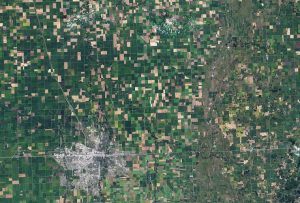Troy Vettese in the Boston Review:
 A century ago in late October, a mutiny broke out in the Imperial German Navy. In Wilhelmshaven on the North Sea, hungry, demoralized sailors refused to follow orders in preparation for one last skirmish with the British for the sake of their officers’ vainglory. Unsure of the crew’s loyalty, the officers ordered the fleet to port in Kiel, but by November 4 the rebels had taken over the city and established a workers’ and soldiers’ council. Their cries for “peace and bread” reverberated throughout the empire, and over the following week revolutionaries captured a string of towns and provinces. On November 9 the red tide had swept over Berlin, forcing Kaiser Wilhelm II to abdicate and ushering in the end of World War I two days later.
A century ago in late October, a mutiny broke out in the Imperial German Navy. In Wilhelmshaven on the North Sea, hungry, demoralized sailors refused to follow orders in preparation for one last skirmish with the British for the sake of their officers’ vainglory. Unsure of the crew’s loyalty, the officers ordered the fleet to port in Kiel, but by November 4 the rebels had taken over the city and established a workers’ and soldiers’ council. Their cries for “peace and bread” reverberated throughout the empire, and over the following week revolutionaries captured a string of towns and provinces. On November 9 the red tide had swept over Berlin, forcing Kaiser Wilhelm II to abdicate and ushering in the end of World War I two days later.
The November Revolution was swift because Germans had been starving for years thanks to the British blockade, as recent historical work has finally proven. But the success of the blockade depended upon German mismanagement. As a populous nation with an economy driven by industry rather than agriculture, Germany had been a major importer of foodstuffs and fertilizer before the war; it faced extreme shortages once fighting broke out. Yet, as detailed in economic historian Avner Offer’s study The First World War: An Agrarian Interpretation (1991), it could have achieved agricultural self-sufficiency had it abandoned animal husbandry. Dairy and meat production were extremely inefficient, then as now. As a visiting U.S. physiologist wrote in 1916: “Had the Germans been vegetarians, there would have been no problem. To the people of India, the ratio of grain to population would have constituted luxury. For people accustomed to eating a great deal of meat and animal products, the natural impulse was to cling as closely as possible to established habits.”
As liberal democracies wilt the world over, it may increasingly feel in the United States—and elsewhere—as though one lives in the Weimar Republic, but perhaps the more useful historical parallel is Wilhelmine Germany. The new special report released by the UN’s International Panel on Climate Change (IPCC), Global Warming of 1.5°C, hints at a dynamic not so dissimilar to that facing German leaders in 1914.
More here.
